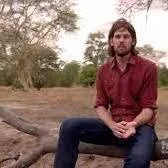Understanding the Rights of Nature w/ Political Scientist, Author, Professor - Highlights
/Associate Professor of Political Science at the University of Oregon
Member of the United Nations Knowledge Network on Harmony with Nature
The term Rights of Nature tends to be applied to two different things. One is this underlying legal philosophy that is actually broader than just Rights of Nature, that’s probably better understood as ecological jurisprudence that may or may not be expressed in terms of rights, but because Rights of Nature is getting a lot of attention that term tends to be applied to represent this broader underlying philosophy. Of course, the other way it’s used it to refer to the legal provisions that explicitly recognize Rights for ecosystems.





